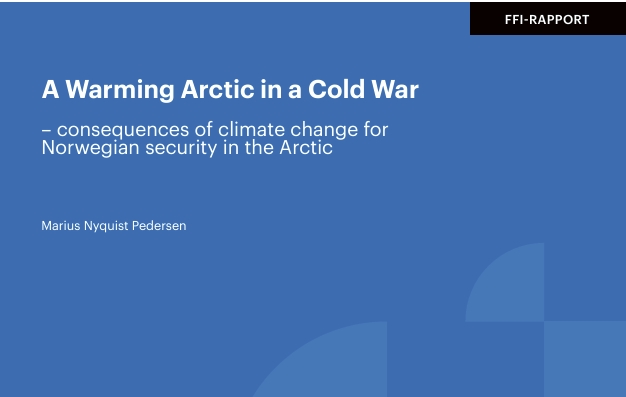‘Throughout the decades of cold war, the Arctic was in many ways a different landscape that was protected from international tension,’ says Marius Nyquist Pedersen in a new report from Norwegian Defence Research Establishment (FFI).
A Warming Arctic in a Cold War– consequences of climate change for Norwegian security in the Arctic, by Marius Nyquist Pedersen.
‘Cooperation has worked well, despite varying levels of tension between major powers globally. However, this has changed after Russia invaded Ukraine. For example, we’ve stopped cooperating with Russia through the Arctic Council. Thus, we’ve lost an important diplomatic forum to keep the level of conflict down. There’s radio silence.
‘When we stop talking together, there’s an increased risk of misunderstanding and conflict,’ Pedersen points out.
A struggle for resources
Pedersen believes that as additional resources and trade routes become available, the global superpower rivalry will increasingly reach the Arctic.
Warmer seas can cause new fish species to migrate to new areas. Mining minerals on the seabed is also a hot topic. With more activity, the risk of conflict will increase.
‘We must expect that several major powers will be present in the Arctic. They often have a tense relationship with each other. At the same time, we see weaker diplomatic and political cooperation in the Arctic. If everyone fishes in the same place, without any underlying conventions or agreements, there may be conflicts over who should have access.
A Warming Arctic in a Cold War– consequences of climate change for Norwegian security in the Arctic, by Marius Nyquist Pedersen.
